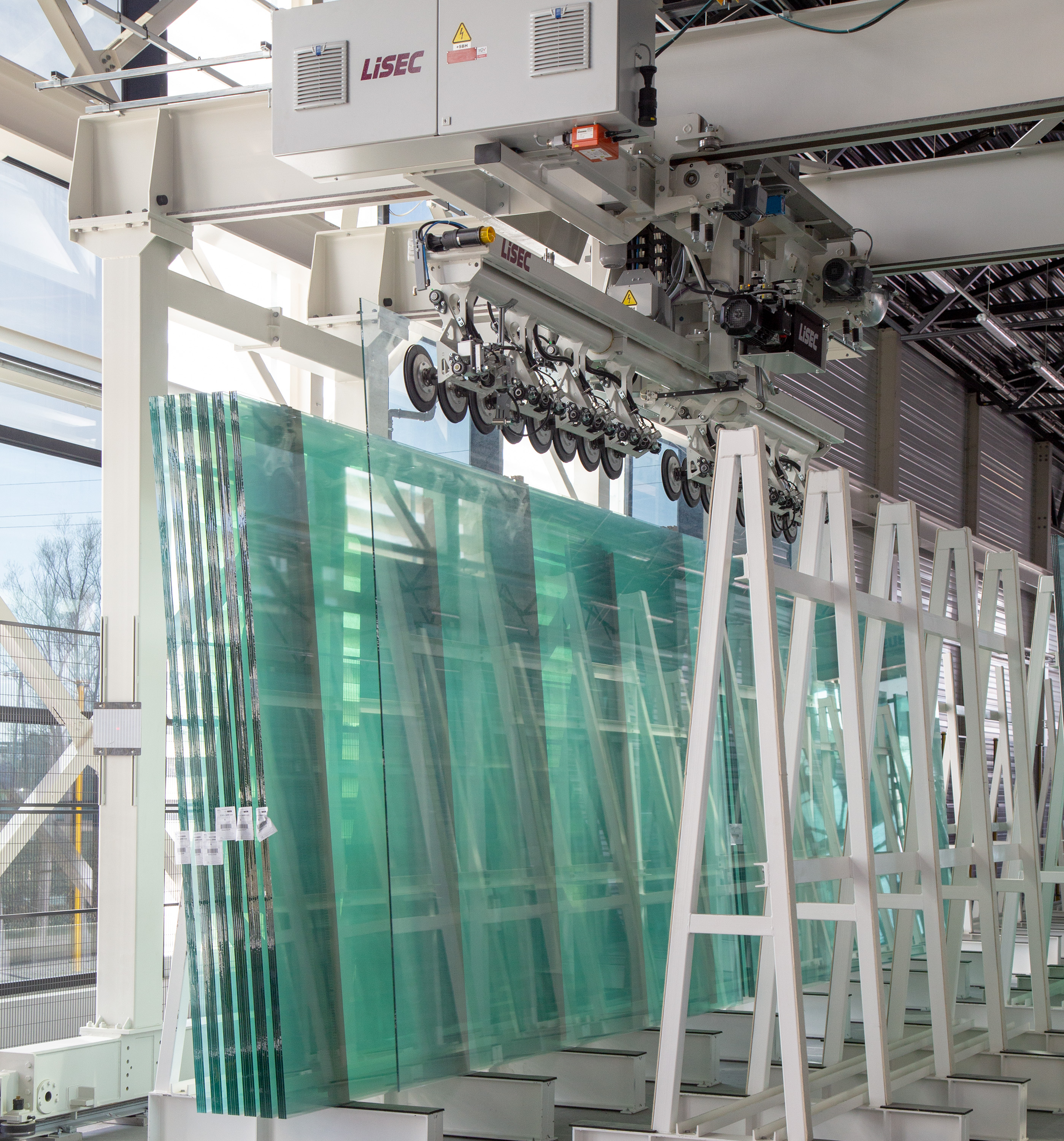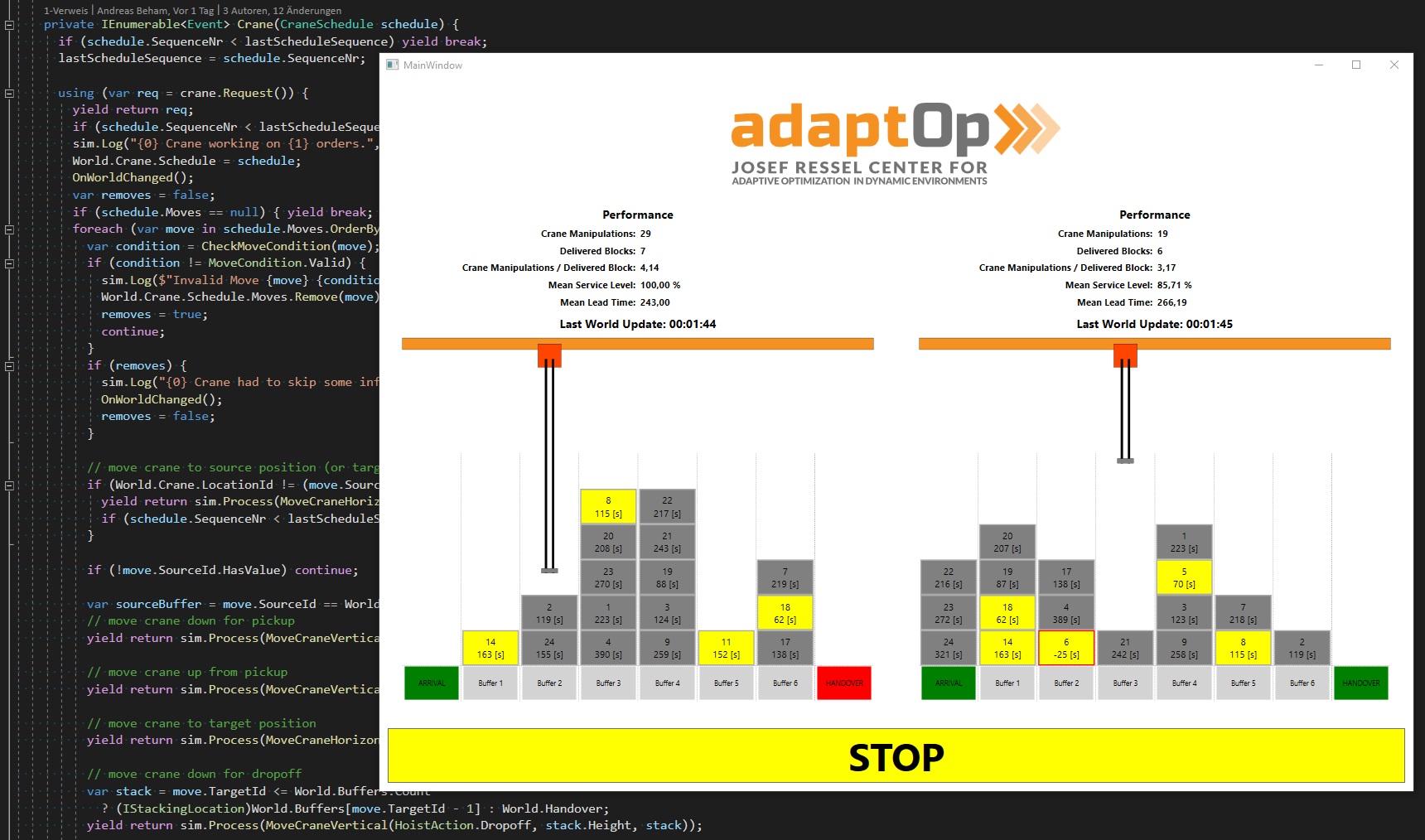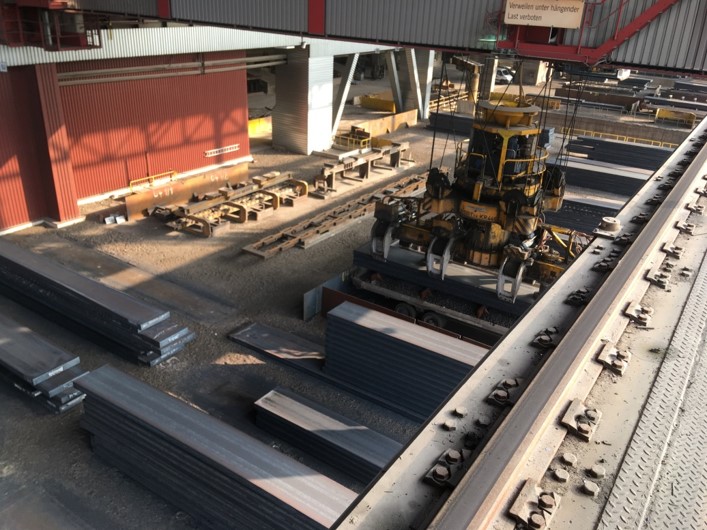JR Centre for Adaptive Optimisation in Dynamic Environments
Head of research unit
Commercial Partner
Duration
Thematic Cluster


This JR Centre researches adaptive optimisation algorithms for controlling dynamic production processes (e.g. steel or flat glass) that are able to continuously learn, adapt to changes and act with foresight.
Optimisation problems from the areas of storage, production and intralogistics can be found, for example, in the control of cranes, transport vehicles or production lines. In view of the advancing digitalisation in production and internal logistics, the use of mathematical and simulation-based optimisation models for process control is an important field of research. The recommendations for action derived from these models must be quickly available, realisable, quality-assuring, cost-efficient, stable and robust.
In the continuous control of production and logistics processes, however, existing solution approaches often do not react sufficiently to dynamic events within the planning horizon. The real world does not pause during the calculation of the optimisation and these change events are not noticed by the ongoing optimisation process. This harbours the risk that the determined solution is qualitatively inadequate or possibly even invalid with regard to these changes. Subsequent repair of the calculated solutions is often not possible efficiently in this case.
To address these challenges, the JR Centre for Adaptive Optimisation in Dynamic Environments is developing proactive, adaptive and temporally unconstrained optimisation methods that are executed synchronously with the real world and are able to continuously observe, react and adapt to change events over time. Such an optimisation process is therefore similar to the behaviour of human decision-makers who continuously monitor a process and use their experience and expertise to prepare for and learn from different possible change events.
In addition to the development of a software environment for adaptive optimisation methods, the formulation of new dynamic problem models and the definition of corresponding benchmarks are also key milestones. Furthermore, machine learning methods are used as an integral part of the solution process in order to predict future events, develop potential future scenarios and automatically select and parameterise adequate optimisation algorithms. Finally, the performance of the developed methods will be analysed using simulation experiments and evaluated by the company partners with tests under realistic conditions.

Links
Christian Doppler Forschungsgesellschaft
Boltzmanngasse 20/1/3 | 1090 Wien | Tel: +43 1 5042205 | Fax: +43 1 5042205-20 | office@cdg.ac.at

